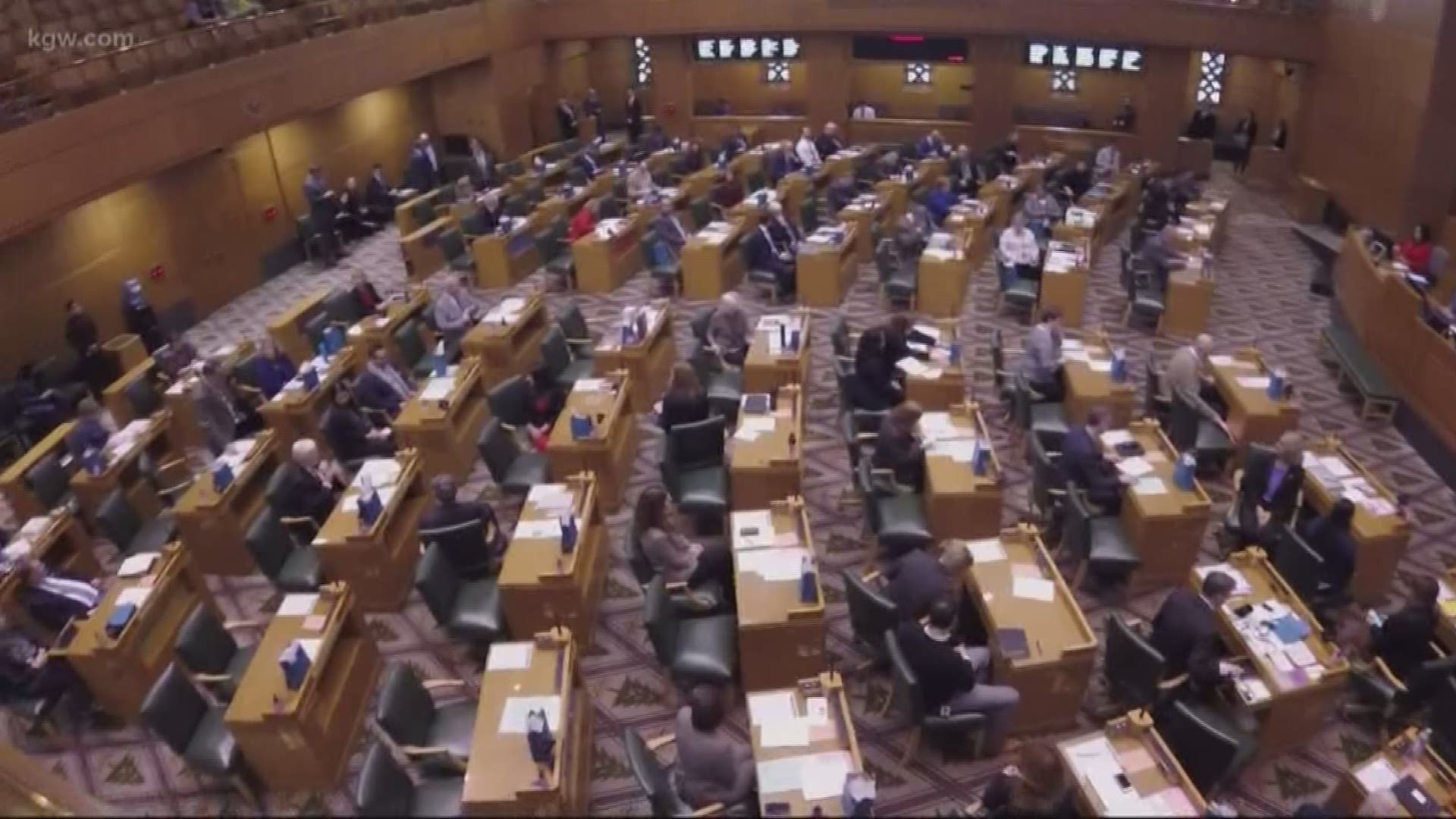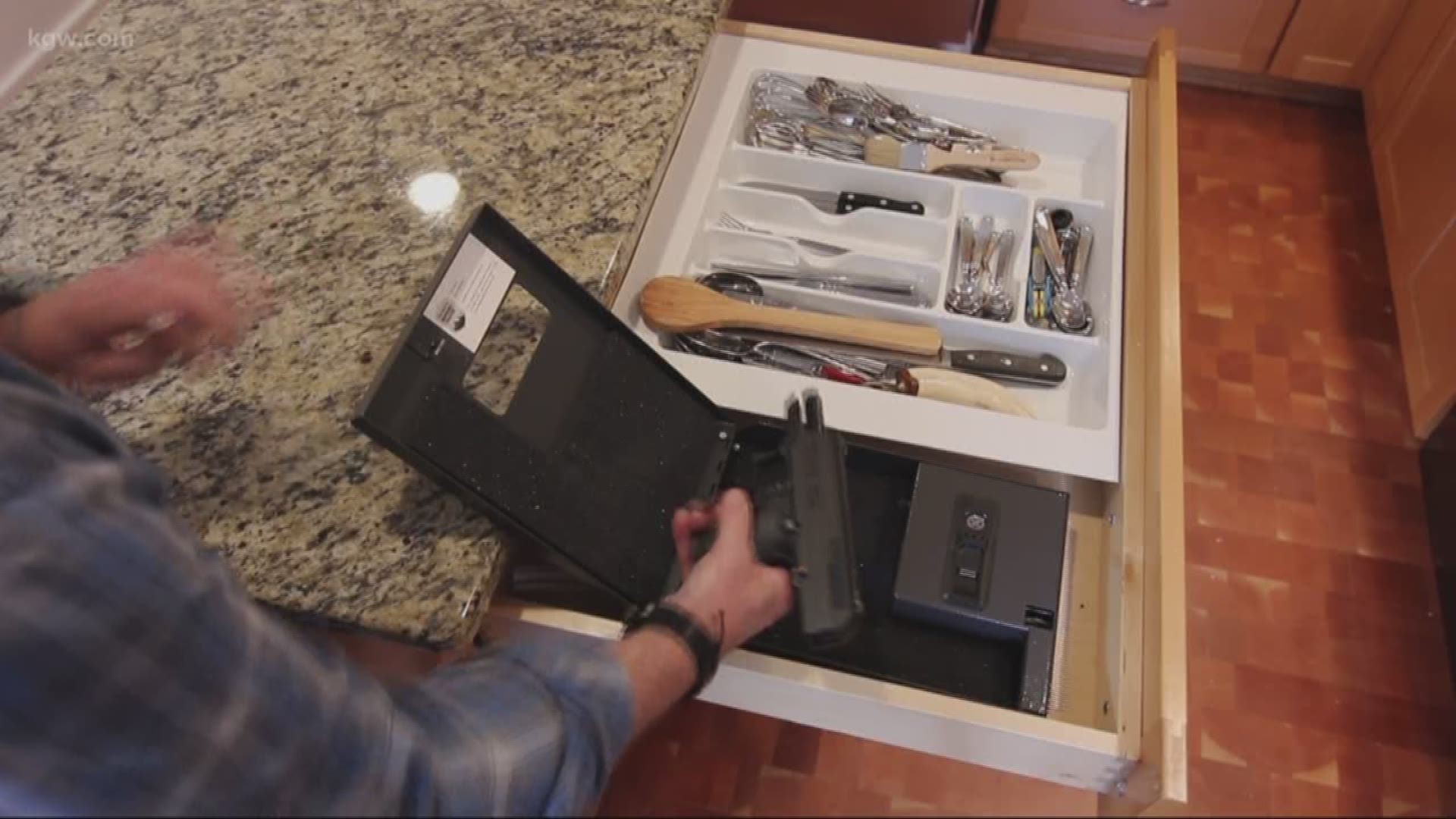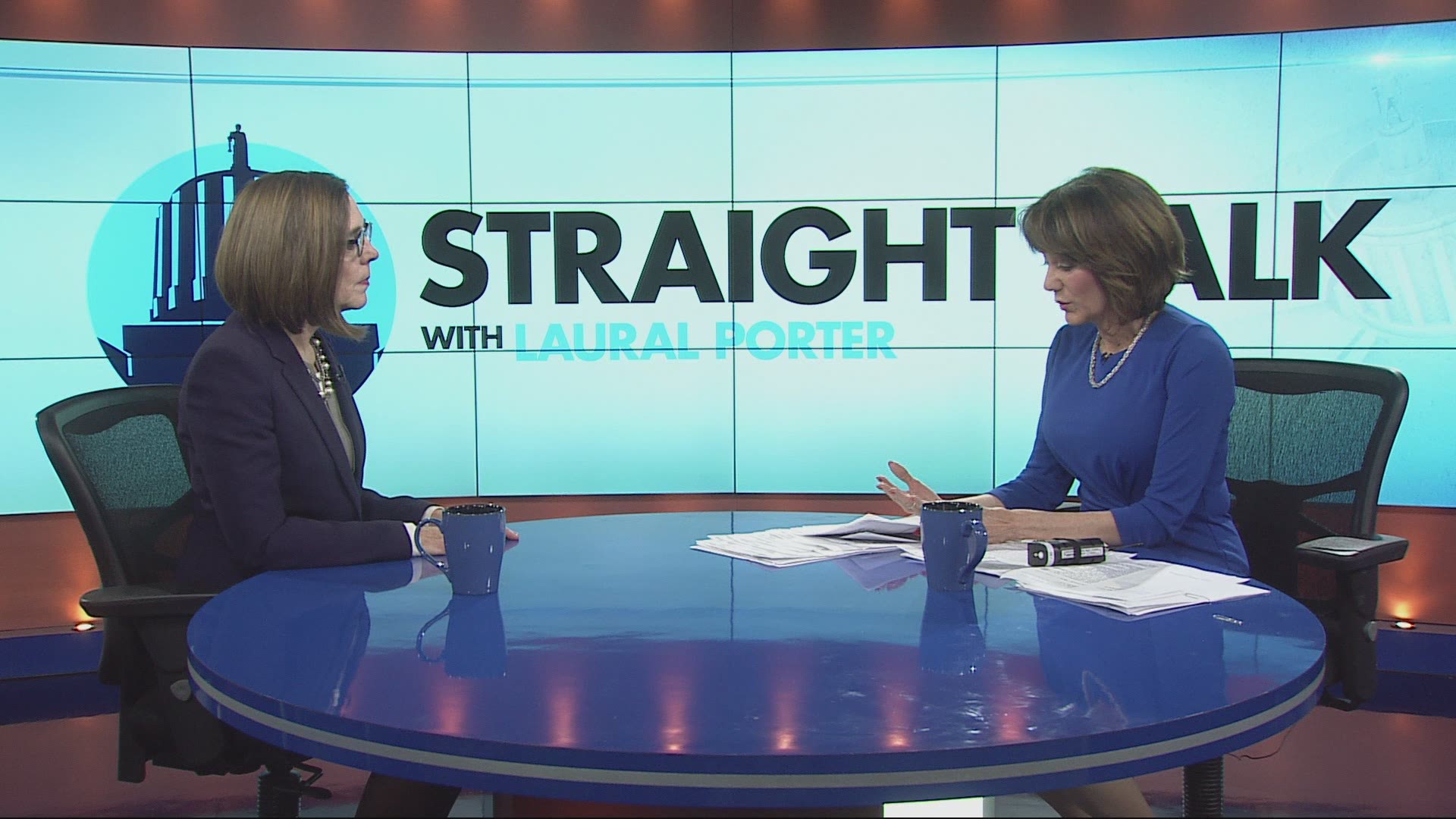SALEM, Oregon — Leaders of the Oregon Legislature spoke last week about the need to bridge divides that exist in the state, just ahead of Tuesday's start of the 2019 session.
Speaking at the Associated Press Legislative Preview, lawmakers described an Oregon that is divided between urban and rural, Democrat and Republican.
The November election gave Democrats a three-fifths supermajority in Oregon’s Legislature with greater power to impose taxes, but Senate President Peter Courtney, D-Salem, said they must wield power carefully.
He recalled that Senate Republican Leader Herman Baertschiger, Jr., had told him that while Baertschiger represents a minority in the Senate, most people in his district around Grants Pass are Republican.
Courtney said he wants legislation from the session that began Tuesday to benefit the entire state of Oregon.
He pointed out that Republicans could jam up legislation by sitting out votes. Quorum rules say 20 senators must be on the Senate floor and 40 representatives on the House floor for votes to take place, Courtney said. Democrats fell short of those numbers in the elections, with 38 seats in the House and 18 in the Senate.
As an example, Sen. Michael Dembrow, D-Portland, said lawmakers are building consensus on land use in Republican-dominated eastern Oregon.
He highlighted a Senate bill on Tuesday that allows counties there to designate up to 50 acres outside urban growth boundaries for industrial and other employment uses.
The bill was sponsored by Senate President Peter Courtney, D-Salem, Sen. Cliff Bentz, R-Ontario, and Sen. Bill Hansell, R-Athena.
House Democrats have pledged to help build a future for all people in the state "and not just people from Portland," House Majority Leader Jennifer Williamson told Capitol correspondents.
Baertschiger lamented that the days when his district was vibrant — in which families could buy a house, a car, and send their kids to college — disappeared in the past 40 years. He said state and federal governments should reevaluate policies that restricted harvesting of natural resources.
"One thing that has just jumped out, and that I recognize very much, is the divide in Oregon, and it really upsets me," Baertschiger said. "The struggles in rural Oregon are different than the struggles in urban Oregon and vice-versa, and I don’t think the Legislature really recognizes that."
Rep. Carl Wilson echoed that, saying there were too many empty storefronts in downtown Grants Pass. The priority of Republican House members is "making rural Oregon prosperous." He said they would try to block legislation they deem dangerous to rural Oregon’s economic health. He said that whenever minimum wage goes up, "our fortunes take another shot."
Gov. Kate Brown, also appearing at the AP event, said Friday that boosting funding for Oregon’s struggling education system is her top priority heading into the 2019 Legislature, while "the time is now for us to make significant investments in our education system," Brown said
Brown has a $2 billion education investment package that would come with some type of tax increase in her proposed state budget, in addition to her base budget. She said property tax limitations adopted in the early 1990s have resulted in decreased funding per student.
While she may ask for $2 billion, the legislature yet again faces an unfunded $26 billion PERS liability. As the Oregonian's Ted Sickinger reports, that $2 billion may just be eaten up by the investment house of cards that is PERS.
Priorities are for early childhood education, increasing the school year to 180 days, increasing the high school graduation rate, and technical education.
The Democratic governor said some funding issues could wind up before Oregon voters in ballot measures, like a cigarette tax that would help fund the Oregon Health Plan.
Partisan clashes are expected on gun control — and over a bill that would limit rent increases in many cases to address the state’s housing crisis.
Wilson said he would not vote for any gun control, even a measure that would require safety locks on firearms to prevent a child from accidentally shooting someone. He said it would be a double tragedy if a parent, through simply forgetting once to lock a gun, resulting in a death of a child, would then have to face possible jail time for violating the law.
"There are people who want to disarm us incrementally over time," Wilson said. He said "rural Oregon is steeped in gun culture."
Democrats, who passed laws in the last session that bars convicted domestic abusers from owning guns, wants legislation similar to laws approved by voters in Washington that would require safe storage of guns. Owners would be held accountable for crimes done with their guns.
Second Amendment advocates rallied last week on the steps of the legislature in opposition to Senate Bill 501, which in addition to safe storage, requires a permit before a gun is purchased and restricts the amount of ammunition in possession and rounds in a magazine.
Senate Bill 608, sponsored by House Speaker Tina Kotek and Senate Majority Leader Ginny Burdick, both Portland Democrats, would prohibit a landlord from terminating month-to-month tenancy without cause after 12 months of occupancy, and limit annual rent increases to 7 percent annual changes in the consumer price index.
Such a move would drive some landlords to sell their homes and get out of the rental business, Wilson said.
Legislation to cut statewide carbon emissions would be a hard sell to his constituents, the Republican said, adding that a carbon tax is likely to pass.
"I have to explain to them what good is it going to do for them, that it costs them more to heat their homes, to drive their cars, to operate their machinery, to drive their trucks," Wilson said.
Kotek responded she’ll need to explain how resources from a carbon pricing program could help the natural resource industry, and that dollars should go to rural areas that are often most impacted by climate change, including drought and wildfires.
Brown, Courtney and Kotek also face the task of eliminating and preventing further issues with sexual harassment at the capitol, especially after a stinging report by outgoing labor commissioner Brad Avakian.
"I need to be very, very clear. Sexual harassment, harassment of any kind in the workplace, whether it is in the Capitol or in our courtrooms or in our classrooms is absolutely unacceptable," Brown told KGW.




